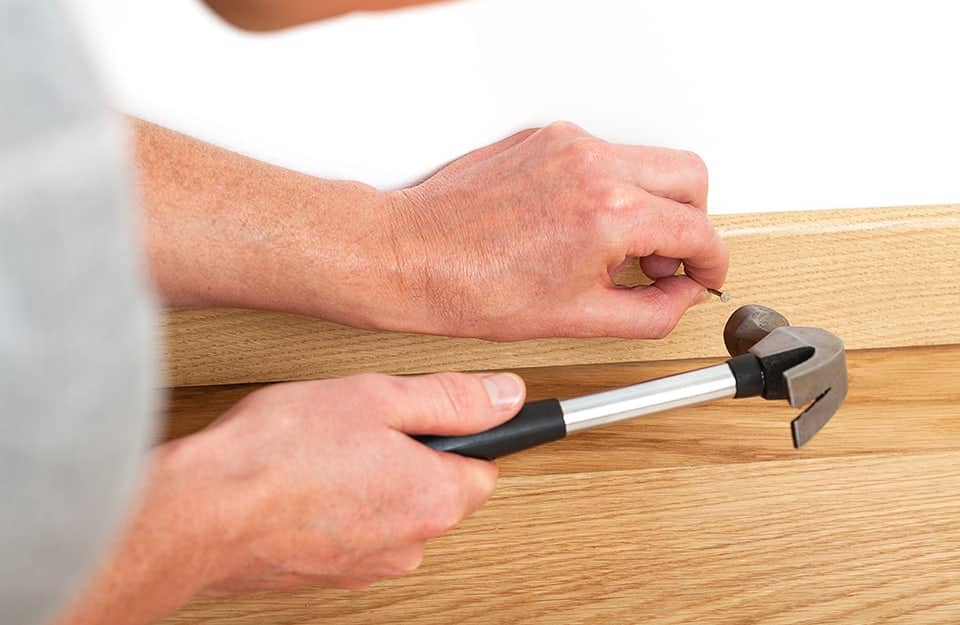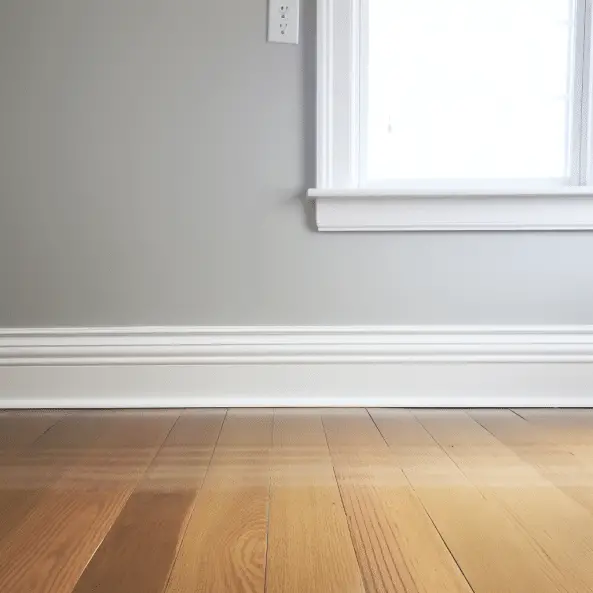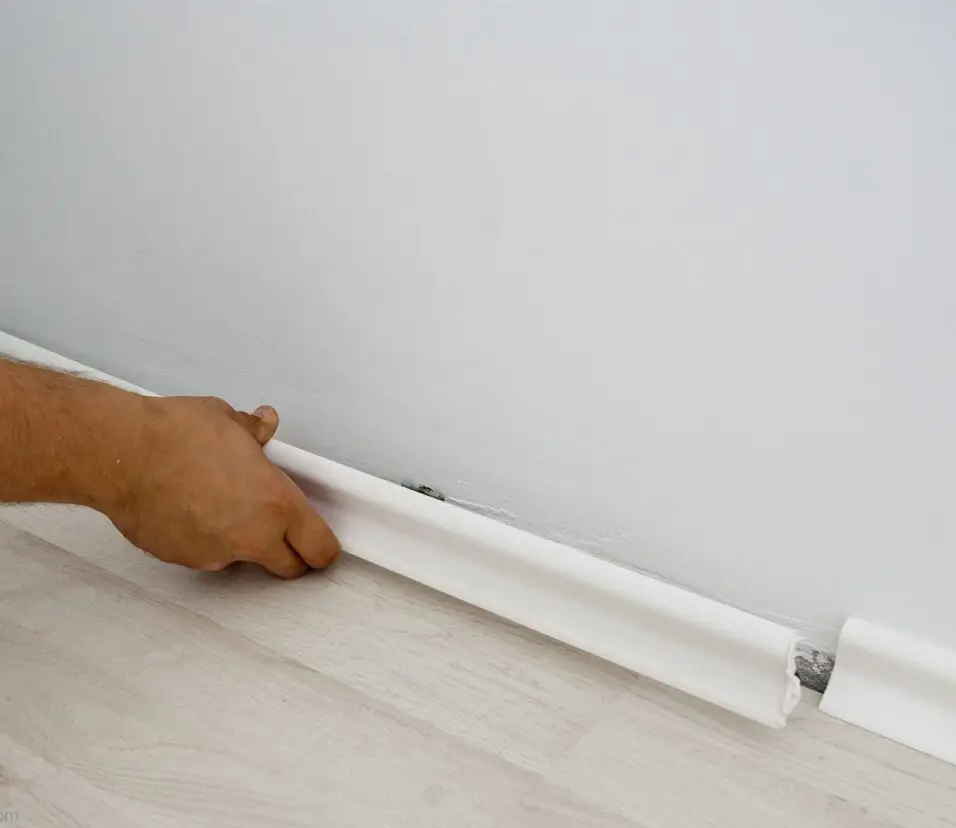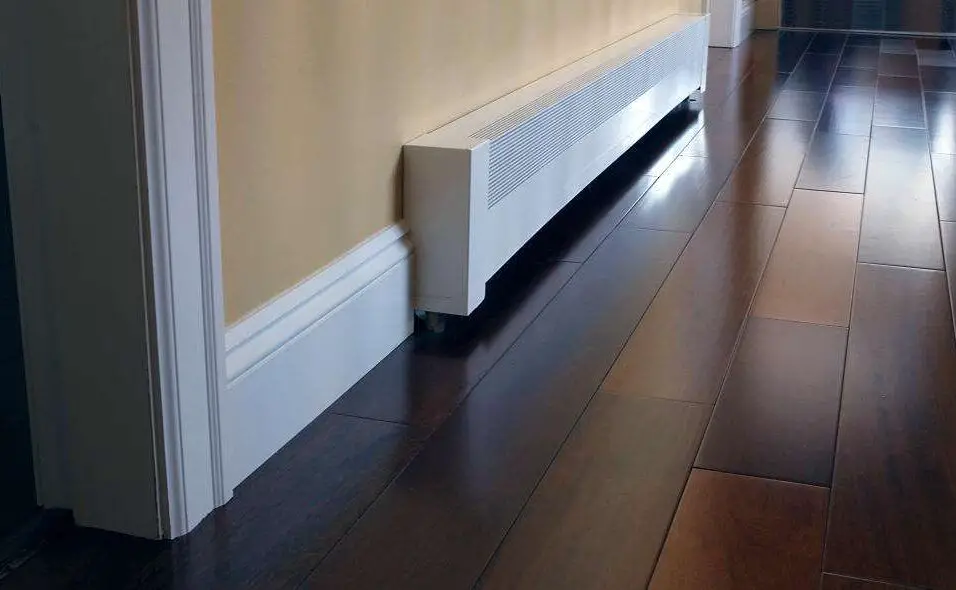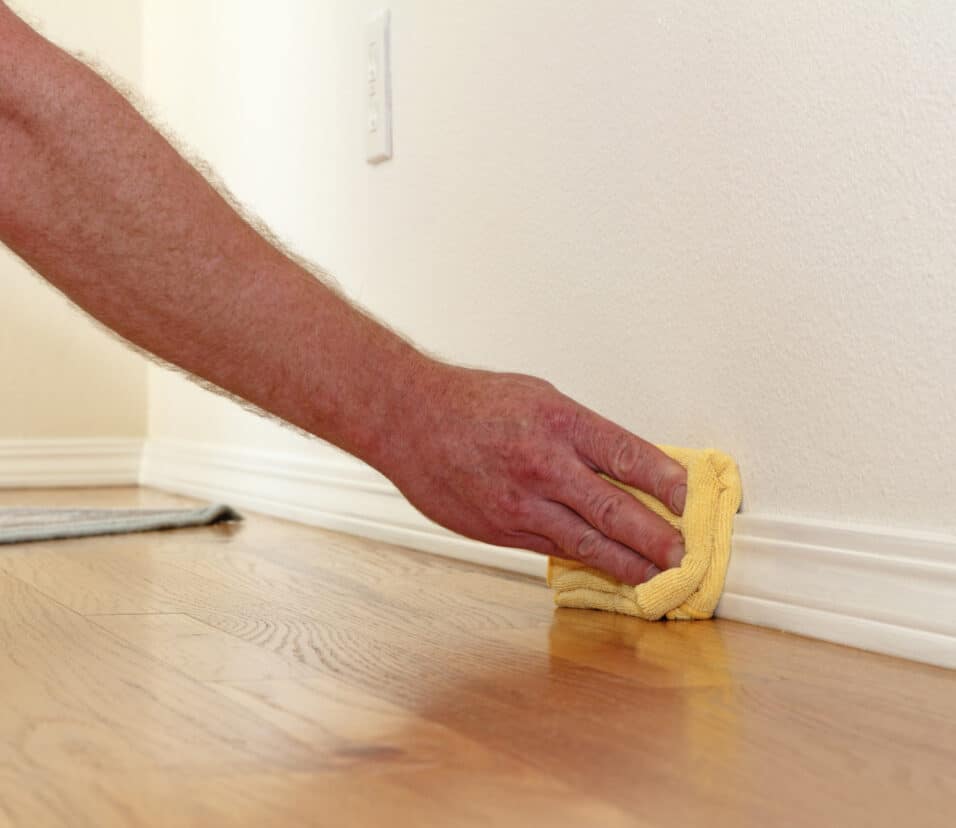What Size Finish Nails For Baseboard
Introduction
What Size Finish Nails For Baseboard: One of the most common sizes of finish nails used for paint baseboards is 15-gauge nails. These nails are relatively thick and sturdy, making them suitable for attaching baseboards to both drywall and wood studs. The 15-gauge nails provide excellent holding power and are less likely to cause splitting or cracking in the baseboard material. They are also long enough to penetrate through the baseboard and into the wall, ensuring a secure and durable installation.
For thinner baseboard materials or when attaching baseboards to delicate surfaces, such as plaster walls, 18-gauge nails are often recommended. These nails are thinner and have a smaller diameter compared to 15-gauge nails. While they may not provide the same level of holding power, they are less likely to cause damage to the baseboard or the wall. Additionally, 18-gauge nails are easier to conceal, as they leave smaller holes that can be easily filled and painted over.
It is important to note that the length of the finish nails should also be considered. The length will depend on the thickness of the baseboard and the depth of the wall material. As a general rule, the nails should be long enough to penetrate through the baseboard and into the wall by at least 1 inch. This ensures a secure attachment and prevents the baseboard from becoming loose over time.
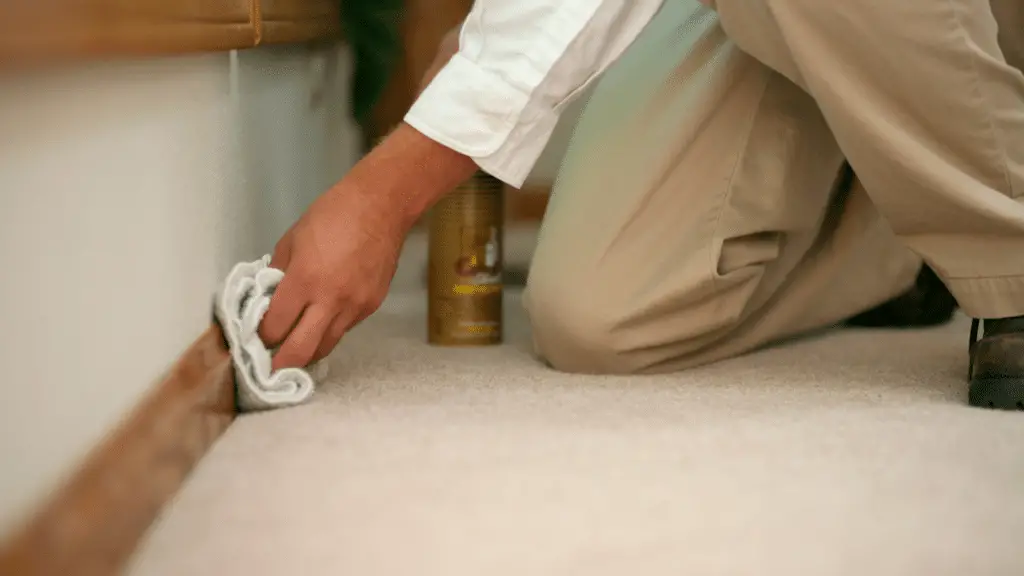
How long should a baseboard finishing nail be?
Between 1.5 and 2 inches
Before starting, make sure you’re using the proper baseboard nail size for your home. Baseboard nails shouldn’t exceed 2 inches. The optimal length is 1.5–2 inches.
Baseboard finishing nail length matters. The baseboard’s durability and wall attachment depend on the nail length. To achieve a professional, long-lasting look, choose the proper nail length.
The baseboard finishing nail length depends on its thickness and the wall it is affixed to. A 2-inch nail is typical for baseboard installation. This length secures baseboards of most thicknesses to the wall. Thicker baseboards or strong wall materials may require a longer nail. A 2 ½-inch or 3-inch nail may be needed for a secure installation.
However, a shorter nail may work for thinner baseboards or softer wall materials. Consider using a 1 ½-inch or 1 ¾-inch nail to prevent baseboard or wall damage. The type of nail you use is also crucial. Finishing nails and their heads are thinner and smaller than regular nails, making them less prone to fracture wood or cause holes. Nail length should be chosen to penetrate baseboard and wall material without harm.
What kind of nails do you use for baseboards?
When installing baseboard trim, you should use 2-inch (6d) or 2½ -inch (8d) 15-18 gauge finishing nails. However, using shorter 1 ½ inch finish nails would be better if the trim is fragile.
When it comes to installing baseboards, choosing the right nails is crucial for ensuring a secure and long-lasting installation. The type of nails you use can greatly impact the stability and appearance of your baseboards. So, what kind of nails should you use for baseboards?
Another popular option for baseboard nails is brad nails. Brad nails are similar to finishing nails but are even smaller in size. They have a very thin gauge and are often used for delicate trim work. Brad nails are less likely to split the baseboard due to their small size, making them a good choice for thinner or more fragile baseboards.
If you are working with hardwood baseboards, you may want to consider using stainless steel nails. Stainless steel nails are highly resistant to rust and corrosion, making them ideal for use in areas with high moisture or humidity. These nails are also strong and durable, ensuring a secure installation that will last for years to come.
What size finishing nails should I use?
Finish nails are multipurpose 15- or 16-gauge nails. Finish nails are 1–3 1/2 inches long. Collated finishing nail strips for nail guns or individual pieces are available.
Choosing the correct size finishing nails for your project involves several criteria. Nail size affects the beauty and longevity of your finished project. Choose the proper nail size to ensure enough holding force without damaging your materials.
When choosing finishing nails, start with the material’s thickness. Working with thin or fragile materials like trim or molding requires a nail that is long enough to fasten the material without breaking or harming it. Generally, use a nail at least three times the thickness of the material you are nailing into.
Nail length matters too. A shorter nail may work for pine. Hardwoods and heavier materials require longer nails for holding force. A nail should be long enough to penetrate the material and reach the structure for a stable hold.
Another consideration is nail gauge. The gauge measures nail shaft thickness. Finishing nails are 15–23 gauge, thickest being 15. The gauge you choose depends on the application and holding power. Thicker gauge nails are stronger and hold more, but they may fracture the material.
Consider material thickness, nail length, and nail gauge when choosing finishing nail sizes for your project. By choosing the correct nail size, you may create a secure and durable result without damaging the materials.
Can I use 18 gauge nails for baseboard?
What gauge nails to use for baseboards? Based on nail size, you should be looking for anything between 15 gauge and 18 gauge. With these gauges it you can easily find nails up to 2.5” long which is an ideal length for baseboard nails.
Yes, you can use 18 gauge nails for baseboard installation. However, it is important to consider a few factors before deciding on the nail gauge for your baseboard project. The gauge of a nail refers to its thickness, with a lower gauge number indicating a thicker nail. In the case of baseboard installation, 18 gauge nails are commonly used and are suitable for most applications.
18 gauge nails are a popular choice for baseboard installation due to their strength, durability, and versatility. However, it is important to consider the specific requirements of your project and adjust the nail gauge and length accordingly. By selecting the appropriate nails, you can ensure a successful and secure baseboard installation.
Can I use 2 inch nails for baseboards?
As a general rule, baseboard nails shouldn’t be any longer than 2 inches. The ideal length is between 1.5 inches and 2 inches.
When it comes to installing baseboards, one of the common questions that homeowners have is whether they can use 2-inch nails for the job. Baseboards are an essential part of any interior design, as they not only provide a finished look to a room but also protect the walls from damage. The type and size of nails used for baseboards can play a significant role in ensuring their stability and longevity.
Additionally, the thickness of the baseboard should also be taken into consideration when selecting the appropriate nail size. Thicker baseboards may require longer nails to ensure a secure installation. It is always a good idea to consult with a professional or refer to manufacturer guidelines to determine the recommended nail size for your specific baseboard material and thickness.
Using the correct nail size for baseboards is crucial for their overall durability and appearance. While it may be tempting to opt for shorter nails for convenience, it is important to prioritize the long-term stability of the baseboards. By using nails that are at least 2.5 inches in length, homeowners can ensure that their baseboards remain securely in place, providing a polished and finished look to their interior spaces.
Which size of finish nails should be used for securing baseboards?
When it comes to securing baseboards, it is important to choose the right size of finish nails to ensure a secure and long-lasting installation. The recommended size of finish nails for baseboard installation is typically 2 inches in length. These nails provide enough length to penetrate through the baseboard and into the wall studs, providing a strong hold.
Using nails that are too short may not provide enough grip, leading to loose or wobbly baseboards over time. On the other hand, using nails that are too long can cause the baseboard to split or crack. Therefore, it is crucial to use the appropriate size of finish nails to achieve a professional and durable finish.
What size finish nails are commonly used for baseboard projects?
When it comes to baseboard installation, the recommended size of finish nails is typically 2 1/2 inches. These nails are commonly used due to their length and thickness, which provide sufficient strength and stability to secure the baseboards firmly to the wall. The 2 1/2-inch finish nails are long enough to penetrate through the baseboard and into the wall studs, ensuring a secure and durable installation.
Using the appropriate size of finish nails is crucial for the success of your baseboard project. If the nails are too short, they may not provide enough holding power and the baseboards could become loose over time. On the other hand, if the nails are too long, they may penetrate through the baseboard and cause damage to the wall or create visible holes that need to be patched.
Are there any specific size requirements for finish nails when installing baseboards?
When it comes to installing baseboards, there are indeed specific size requirements for finish nails. The recommended size of finish nails for baseboard installation is typically 15 or 16 gauge. These sizes provide the necessary strength and stability to securely attach the baseboards to the wall.
Using the correct size of finish nails is crucial for ensuring the longevity and durability of your baseboard installation. If the nails are too small, they may not hold the baseboards firmly in place, leading to potential issues such as warping or loosening over time. On the other hand, if the nails are too large, they may split the baseboards or cause visible damage. Therefore, it is important to choose the appropriate size of finish nails based on the thickness and material of your baseboards. By using the correct size of finish nails, you can ensure a secure and aesthetically pleasing baseboard installation.
Can you provide guidance on the appropriate size of finish nails for baseboard applications?
When it comes to choosing the right size of finish nails for baseboard applications, there are a few factors to consider. The most commonly recommended size for securing baseboards is 2 1/2 inches. This size provides enough length to securely attach the baseboard to the wall without the risk of the nail coming loose over time. It also allows for some flexibility in case the baseboard needs to be removed or replaced in the future.
However, it’s important to note that the size of the finish nails may vary depending on the thickness of the baseboard and the type of material it is made of. For thinner baseboards or those made of softer materials like MDF, a slightly shorter nail, such as 2 inches, may be sufficient. On the other hand, if you are working with thicker or hardwood baseboards, you may need to use longer nails, such as 3 inches, to ensure a secure installation.
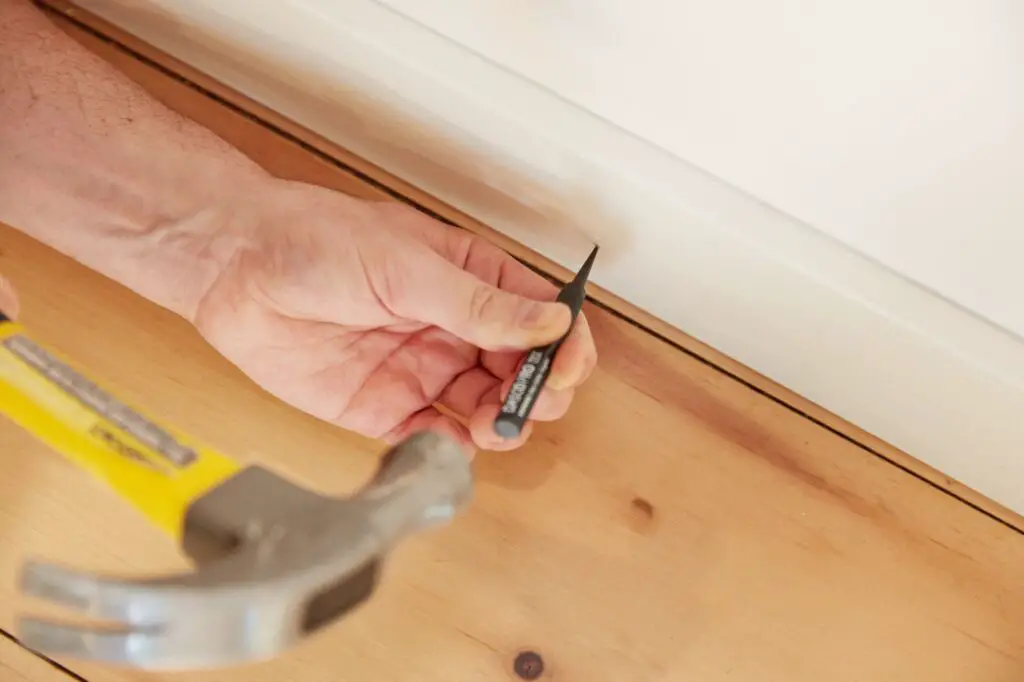
Conclusion
When selecting the size of finish nails, it is important to consider the thickness of the baseboard. Thicker baseboards require longer nails to penetrate through the baseboard and into the wall studs or framing. Using nails that are too short may result in a weak connection and the baseboard becoming loose over time. On the other hand, using nails that are too long may cause the baseboard to split or crack.
The type of material the baseboard trim is made of also plays a role in determining the appropriate size of finish nails. For softer materials such as pine or MDF (medium-density fiberboard), shorter nails may be sufficient. However, for harder materials like oak or hardwood, longer nails may be necessary to ensure a secure attachment.
When choosing the size of finish nails for baseboard installation, it is important to consider the thickness of the baseboard and the type of material it is made of. 15 or 16-gauge finish nails are generally recommended for most baseboard projects, providing sufficient strength and holding power. By selecting the appropriate size of finish nails, you can ensure a secure and professional-looking finish for your baseboard installation.



